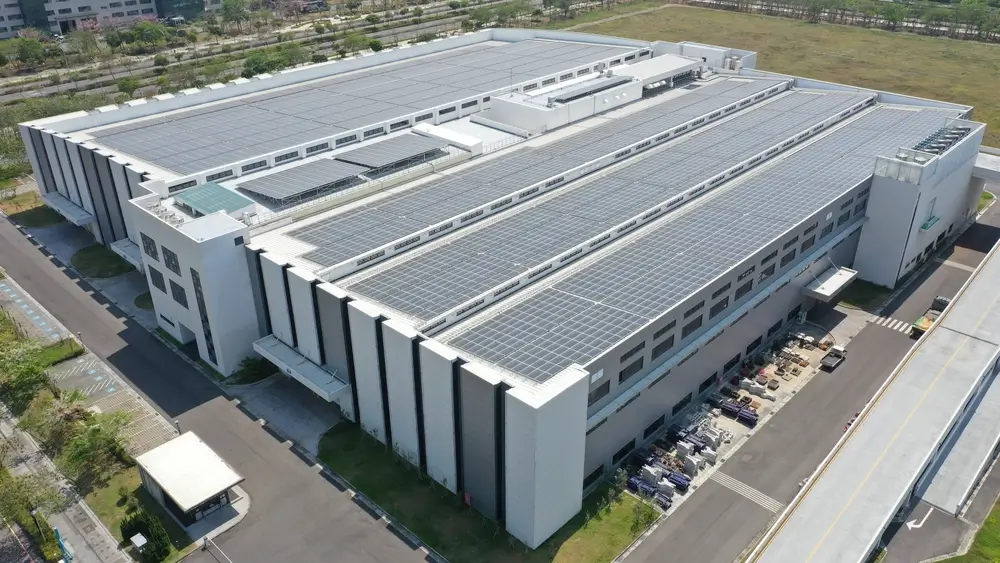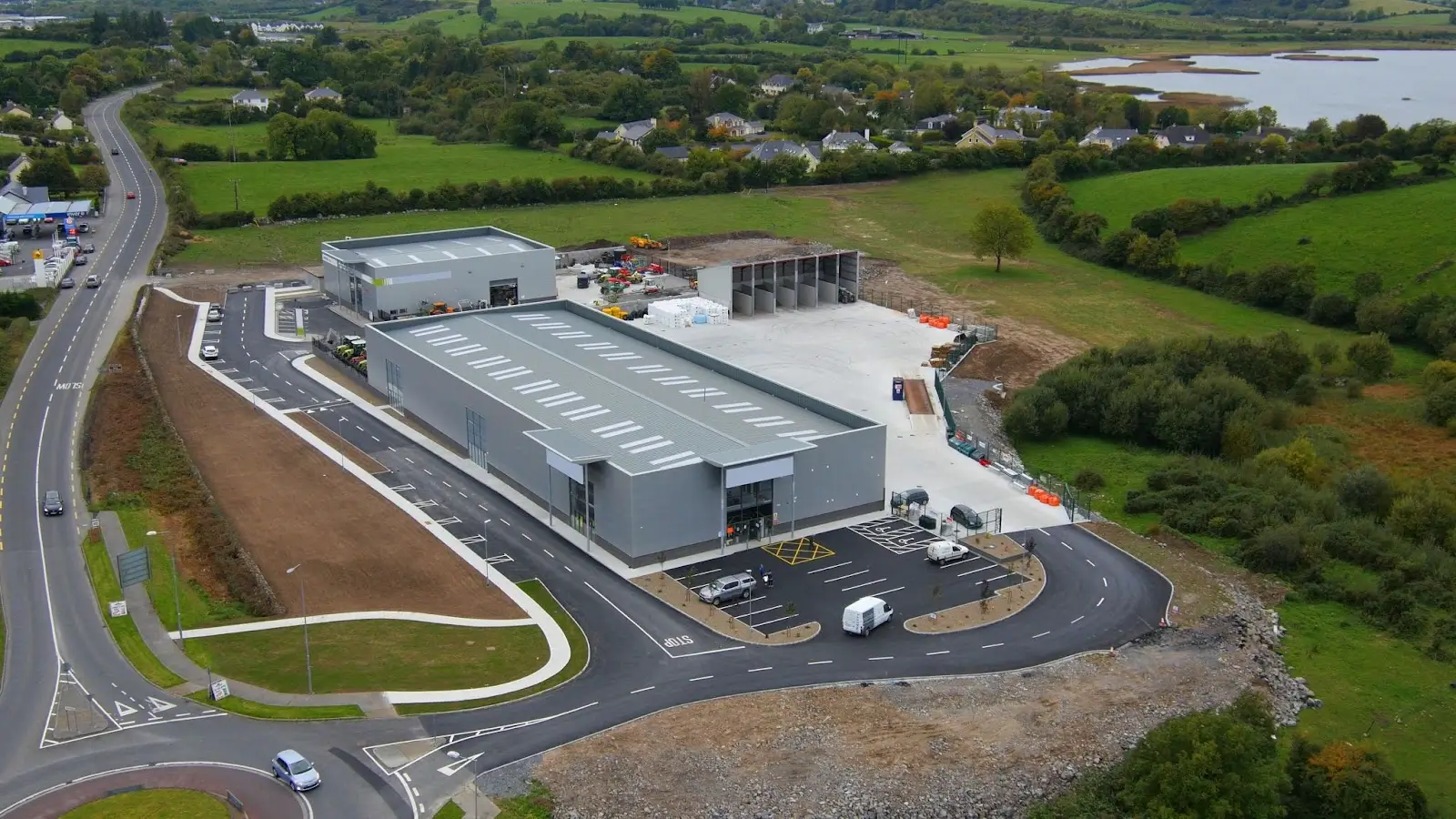Are you considering investing in industrial real estate and wondering if it’s a viable option? Industrial real estate has gained significant traction as a profitable investment sector, driven by various economic trends and demands. Let’s explore what industrial real estate entails and why it might be a smart addition to your investment portfolio.
What Is Industrial Real Estate?
Industrial real estate refers to properties used for industrial purposes such as manufacturing, storage, distribution, and research. These properties are crucial for the supply chain, housing activities that produce goods and services essential to the economy.
Types of Industrial Real Estate
From the raw land for future development to the high-tech facilities that power the digital age, the industrial real estate sector offers a variety of options to suit specific business needs. Here are some of the different types of industrial real estate:
Industrial Land
Industrial land refers to undeveloped parcels designated for industrial use. This land can be developed for various industrial purposes, making it a versatile investment option.
Warehouse & Distribution Centers
These facilities are used for storing and distributing goods. With the rise of e-commerce, the demand for warehouse and distribution centers has skyrocketed.
Manufacturing Facilities
Manufacturing facilities are properties where goods are produced or assembled. These facilities often have specialized equipment and infrastructure tailored to specific industries.
Flex Warehouse
Flex warehouses combine office and industrial space, offering flexibility for businesses that need both in a single location.
Light Assembly
Light assembly facilities are used for assembling products from pre-manufactured components. They are less intensive than full-scale manufacturing plants.
Cold Storage
Cold storage facilities are specialized warehouses for storing perishable goods at controlled temperatures, essential for the food and pharmaceutical industries.
Data Centers
Data centers house servers and IT infrastructure for data storage and processing. The growing need for cloud computing and data storage has increased demand for these properties.
Industrial Showroom
Industrial showrooms serve as both warehouse and display spaces, allowing businesses to showcase their products while maintaining inventory.
Research & Development Sites
R&D sites are dedicated to innovation and development activities, often featuring laboratories and testing facilities.
Industrial Outdoor Storage
These properties provide outdoor storage space for large equipment, vehicles, and materials, commonly used by construction and logistics companies.

What Is Driving The Demand For Industrial Real Estate?
The demand for industrial real estate is influenced by several key factors that shape the market dynamics.
E-commerce Boom
The rise of online shopping has created a massive demand for warehouses and distribution centers to manage and ship products efficiently. As consumers increasingly prefer the convenience of online shopping, businesses require expansive storage and distribution facilities to handle the large volumes of goods being ordered and delivered.
Last-Mile Delivery
The need for quicker delivery times has increased the demand for industrial properties located near urban centers to facilitate last-mile delivery.
Supply Chain Resilience
Companies are investing in industrial real estate to strengthen their supply chains, ensuring they can handle disruptions and maintain operations smoothly.
Cold Storage Facilities
The growth in online grocery shopping and pharmaceuticals has driven the need for more cold storage facilities.
Urbanization & Population Growth
As urban areas expand and populations grow, the demand for industrial properties close to cities increases to support local economies and logistics.
Manufacturing and Light Industry
The resurgence of domestic manufacturing and light industrial activities has bolstered the need for specialized industrial properties.
Technology Integration
Advancements in technology, such as automation and smart warehousing, have increased the efficiency and appeal of industrial properties.
Foreign Investment
Foreign investors are attracted to the stability and growth potential of the industrial real estate market, further driving demand.
Sustainability Initiatives
The push for greener, more sustainable operations has led to the development of eco-friendly industrial properties.
Adaptive Reuse
The conversion of obsolete industrial properties into modern, functional spaces supports the evolving needs of various industries.
Are Industrial Properties A Good Investment?
Industrial properties are considered a solid investment due to their ability to generate steady income and appreciate in value over time. They are less susceptible to market volatility compared to other real estate sectors.

Commercial Real Estate vs. Industrial Real Estate: What’s the Difference?
While both are subcategories of real estate, they differ in their purposes, tenant types, and location requirements.
Commercial properties are typically used for retail, office, and service-based businesses and facilitate transactions between businesses and consumers. They are often located in high-traffic areas. Industrial real estate, on the other hand, deals with the production, storage, and distribution of goods. Warehouses, factories, and distribution centers are prime examples, and functionality usually trumps aesthetics in their design. These properties are often located near transportation hubs but don’t require the same level of customer visibility as commercial spaces.
Reasons to Invest in Industrial Properties
Are you considering industrial real estate investing? Industrial property investing offers numerous advantages that make it an attractive option for investors.
Steady Income Streams
Industrial properties often come with long-term leases, providing investors with reliable and consistent income. These leases typically span several years, ensuring a steady cash flow and financial predictability.
Diversification
Adding industrial real estate to your investment portfolio can diversify your holdings, reducing overall risk. Diversification helps spread risk across different asset classes, balancing potential losses in other areas.
Strong Demand
The ongoing demand for industrial space, driven by e-commerce and supply chain needs, ensures a strong market for industrial properties. This high demand supports occupancy rates and rental income, making industrial properties a dependable investment.
Resilience in Economic Downturns
Industrial properties have historically shown resilience during economic downturns, maintaining occupancy and income levels better than other real estate sectors. Their essential role in logistics and manufacturing makes them less vulnerable to economic fluctuations.
Long-Term Appreciation
Industrial properties tend to appreciate in value over time, offering potential capital gains to investors. As the demand for industrial space grows, property values are likely to increase, providing a solid return on investment.
Low Tenant Turnover
Industrial tenants typically sign long-term leases, resulting in lower tenant turnover and reduced vacancy rates. This stability minimizes the costs and disruptions associated with finding new tenants frequently.
Tax Advantages
Investing in industrial real estate can provide tax benefits, including depreciation deductions and potential tax deferrals. These tax advantages can enhance the overall return on investment by reducing taxable income.
Inflation Hedge
Industrial properties can act as a hedge against inflation, as rental income and property values often rise with inflation. This helps preserve the purchasing power of your investment returns over time.
Portfolio Stability
The stable nature of industrial real estate can contribute to overall portfolio stability, balancing more volatile investments. Including industrial properties in your portfolio can provide a steady anchor amidst market fluctuations.
E-commerce Growth
The ongoing growth of e-commerce continues to drive demand for industrial spaces. As online shopping expands, so does the need for warehouses and distribution centers, making industrial properties a lucrative investment.

How To Find Industrial Real Estate Investments in Houston, TX
Finding the right industrial real estate investments in Houston requires a strategic approach and local knowledge. Here are some effective methods to help you identify promising opportunities:
Leverage Online Commercial Real Estate Platforms
Utilize online platforms that list industrial properties for sale in Houston, allowing you to browse and compare options easily. These websites allow you to browse and compare options easily, providing detailed information about each property, including location, size, and pricing.
Work with Local Real Estate Brokers & Agencies
Engage with local real estate brokers and agencies who have in-depth knowledge of the Houston market. These professionals can help you find the best deals and provide valuable insights into market trends and property values. They can also offer access to off-market listings that might not be available online.
Networking and Industry Connections
Leverage your network and industry connections to uncover potential investment opportunities. Attend local real estate events, join industry associations, and participate in networking groups to meet other investors and professionals. Building strong relationships can lead to valuable leads and insider information about upcoming opportunities.
Consider Auctions and Real Estate Auction Websites
Explore auctions and real estate auction websites for potential bargains on industrial properties. Auctions can offer competitive prices and unique opportunities that might not be available through traditional sales channels.
Engage in Direct Outreach
Directly reach out to property owners and developers in Houston to inquire about potential investment opportunities.
Looking to Buy an Industrial Property in Houston?
For those looking to invest in industrial properties in Houston, partner with Apex Realtors, a leading real estate agency in the Houston area.
Apex Realtors specializes in helping buyers, sellers, and first-time investors navigate the industrial real estate market. Their extensive network and industry connections also allow them to access exclusive listings and negotiate favorable terms on your behalf. They can even provide insights into financing options, tax advantages, and long-term investment strategies to maximize your returns.
Visit Apex Realtors at 5444 Westheimer Rd., Suite 1620, Houston, TX 77056, for comprehensive support and advice on your investment journey as you find the ideal industrial property to add to your portfolio.

